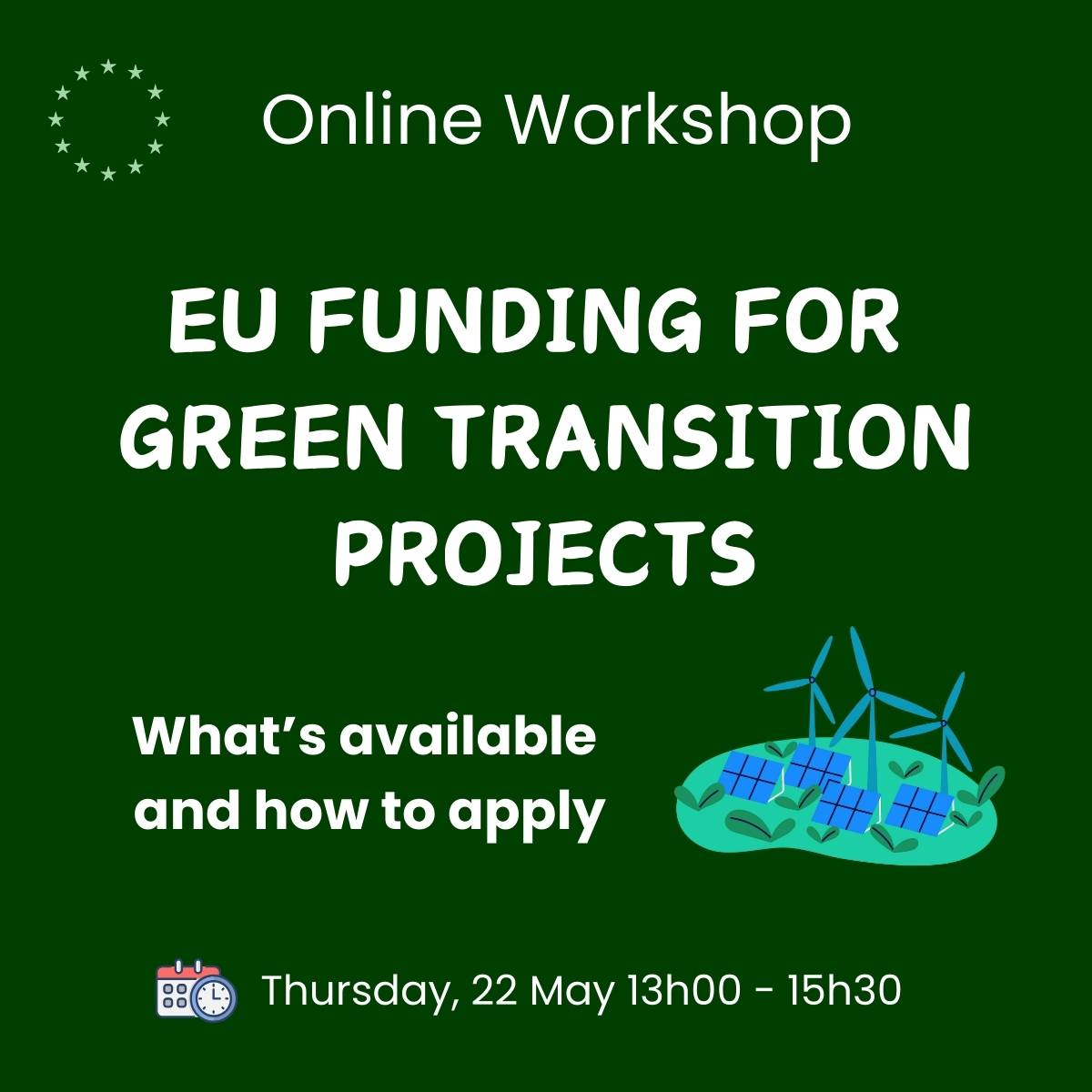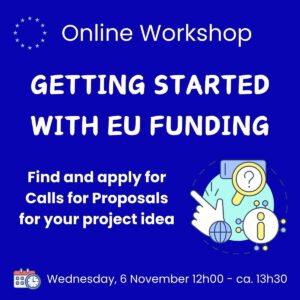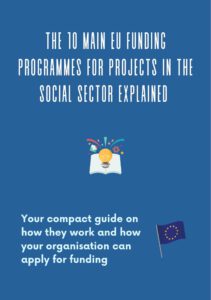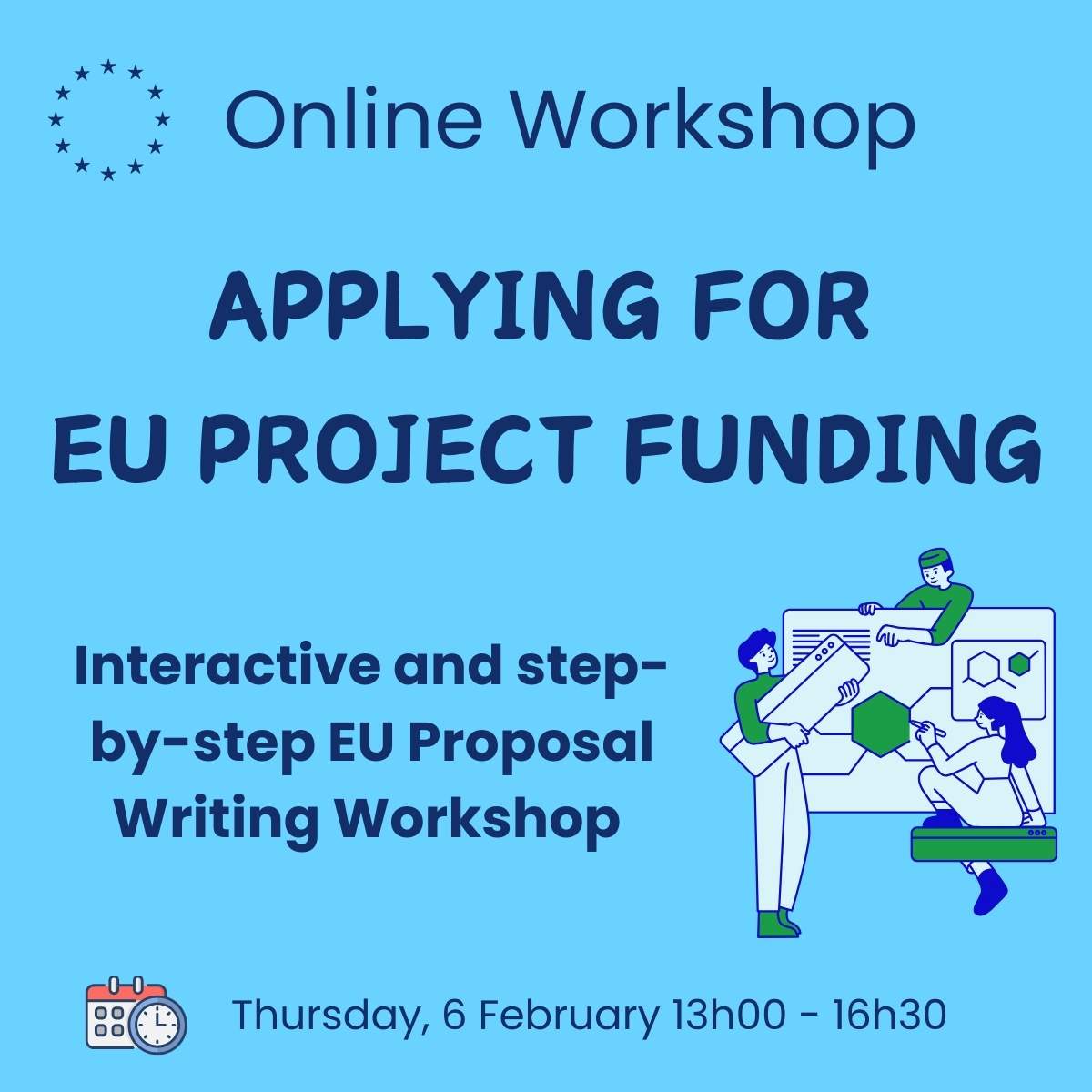
EU grants and nonprofits: 6 common misconceptions unpacked as opportunities
EU project funding for nonprofits: Discover 6 misconceptions that hold organisations back and how to turn them into opportunities for growth and impact.
If your organisation is working in areas like citizen participation or equal rights, the EU’s CERV (Citizens, Equality, Rights and Values) programme may be worth looking into. CERV offers interesting funding opportunities for non-profit organisations and public entities such as towns and municipalities. Funded activities can range from citizen engagement projects to cooperation between cities, the integration of migrants or fighting disinformation, and several other topics. Read on to learn more.
The CERV programme funds the democratic, civic and social participation of citizens including the involvement in political decision-making. This article mainly focuses on CERV funding opportunities for non-profit organisations and public authorities.
CERV projects can, for example, target civil and human rights protection and the promotion of equal rights of all citizens in accordance with the EU’s treaties and values. This involves not only gender equality, but non-discrimination and equal rights in a broader sense.
The projects can be implemented at local, regional, national and transnational level, depending on the requirements of the particular Call for Proposals. While citizen participation projects can be organised at local level, one interesting option is the direct exchange of citizens from different countries, thus offering them a really tangible European experience.
The CERV programme is composed of 4 funding strands:
Within the Citizens’ Engagement and Participation strand, better participation of civil society in policy-making processes and empowering citizens are at the core of the activities. To this end, citizen engagement projects can be set up to support democratic participation. Funded topics can for example refer to understanding policy-making and participation in EU decision-making processes, or to climate and the environment or addressing other current societal challenges. In this context, workshops, debates or other exchange fora can be organized with the goal to propose solutions to decision-makers.
One of the defined objectives of CERV is to support good local governance and to strengthen the role of local and regional authorities in the EU integration process, for example through the exchange of best practices and cooperation between towns and municipalities in Europe. Funded activities include town-twinning and networks-of-towns projects which aim to increase citizens’ engagement in society and political life. In this framework, CERV provides the opportunity even for the very local level including citizens to cooperate beyond borders, to exchange and to learn from each other.
The CERV Union Values strand finances projects to protect and promote the values of the EU in line with the EU treaties and the EU Charter of Fundamental Rights. For example, activities promoting the respect of human rights can be funded, including the protection of the rights of persons belonging to minorities. The fight against radicalisation and extremism can be supported within this funding strand too. Also, speaking of challenges that our digital world raises, activities related to combating hate crime and hate speech can be implemented.
Funded activities can include capacity-building of Civil Society Organisations (CSOs), mutual learning and awareness raising activities. One of CERV’s goals is to better enable civil society organisations to be involved in policy and decision-making processes with local, regional, and national governments. In this respect, activities should either help to maintain or, where civil society influence is shrinking, contribute to a more open and inclusive democratic society.
The Equality, Rights and Gender Equality strand of the CERV programme funds the promotion of equality and the fight against all grounds of discrimination and intolerance, including racism, xenophobia, gender, religion or belief, disability, age and sexual orientation.
Examples for possible activities are measures to fight against discrimination on the labour market such as gender pay gaps, tackling gender stereotypes, or supporting Roma equality, inclusion and participation.
The fourth CERV programme strand supports projects to prevent and combat gender-based violence and violence against children including domestic violence. Funded activities can include awareness-raising, the training of professionals and victims support. Projects are expected to be executed by Member States’ public authorities, support services and Civil Society Organisations.
So, what are the modalities for CERV projects? Depending on the specific Call for Proposals, a CERV project can sometimes be implemented by one single organisation or otherwise by a minimum number of participants from different countries. In the Network-of-Towns-Call 2024 for example, organisations must come from at least four different eligible countries of which at least two are EU Member States.
Many CERV projects are implemented by Civil Society Organisations and, depending on the Call topic, in cooperation with public authorities or other stakeholders such as for example educational, cultural or research institutions and universities. Funded activities can include ensuring equal rights of citizens, or citizen participation for example through the organisation of events or debates bringing citizens and/or other stakeholders together – locally, transnationally or virtually.
The maximum grant amounts and co-financing requirements depend on the individual Call. For some Calls and under certain conditions it allowed to include unit costs for volunteer work in the grant budget which is then counting towards your own contribution (co-financing) so that up to 100% of eligible costs could be reimbursed (but never more than 100% as profits are not permitted in EU funded projects – if there are profits, the grant amount will be reduced accordingly).
As an applicant organisation, you also need to show that you have the capacity to implement the project. This means you need to have stable and sufficient resources, including experienced and qualified staff for implementing such a project.
Your project application will be evaluated by independent expert evaluators through pre-defined criteria related to the relevance, quality and impact of your submitted project proposal. For these three overall criteria, there are more detailed sub-criteria which are usually published in the relating Call document. The procedure is competitive and the available budget will be awarded to the proposals which received the highest scores in the evaluation. Therefore, make sure your proposal is a real fit for the Call you are applying for and respond thoroughly within all sections of the application form.
To know more about how to apply for a CERV grant, check out my article “Getting prepared for your first CERV funding application – A 6-step approach”
Do you need support with your CERV application? Don’t hesitate to get in touch.
Are you planning to apply for a CERV grant and would like learn step-by-step how to craft a compelling proposal? Join the hands-on, interactive online CERV proposal writing workshop on 4 September 2025!

Author: Astrid Mechel
https://eufundingconsulting.eu
Hello, I am Astrid Mechel and I work (for the most part) with small and medium sized organisations who aim to access EU funding. It is my goal to help discovering suitable EU project funding possibilities and to provide support to submit a high-quality grant application. My main thematic focus is on grants for research and innovation, environmental sustainability as well as on social inclusion and participation.
Read more articles here:

EU project funding for nonprofits: Discover 6 misconceptions that hold organisations back and how to turn them into opportunities for growth and impact.

Applying for EU funding can be a complex and challenging. This article offers 12 practical tips to help you avoid the most common stumbling blocks.

Winning Horizon Europe funding takes more than a great idea – it requires strategy, clear messaging, and a good understanding how proposals are evaluated.
Online Workshop

Interactive Live Workshop
On 22 May 2025 from 13h00-15h30
Registrations are closing soon

Curious about EU funding and how it could support your next project? Join the new live programme round for a compact and easy-to-follow way to get started with EU funding.
Key Terminologies – Application Guidance

This guidance compares and compare and clarifies the 10 key terminologies within an EU funding application. How should you address them in your proposal, and what kind of information belongs to which one of them?
Online Workshop on 6 November!

The workshop “Getting Started with EU Funding” is for participants with no or very limited experience in EU funding. Discover what kind of projects the EU is funding, the requirements and how you can apply for funding in your thematic field.
EU Funding Checklist

Do you have a new project idea and are wondering if EU funding could be available for your project?
This checklist will guide you through the most important questions to be considered when applying for EU project grants and includes some further suggestions how you could adapt your concept to be more in line with EU expectations regarding fundability.
Get the brand new upgraded guidance booklet (free offer):
Your compact guide on how they work and how your organisation can apply for funding

Find out which 10 EU programmes offer grants for projects in the social sector, what the conditions for funding are and how you can apply.
Online Workshop

Interactive and step-by-step EU Proposal Writing Workshop
On 6 February 2025 from 13h00-16h30